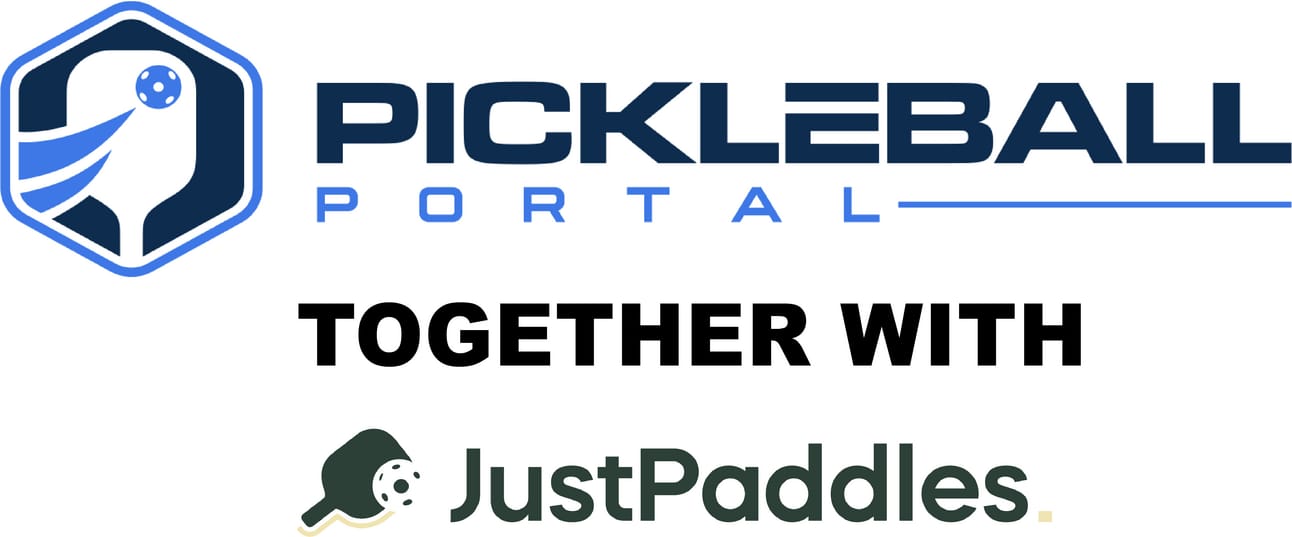
Today's edition is brought to you by JustPaddles — offering a diverse range of quality pickleball paddles with free shipping, personalized selections, and excellent deals.

Why disrespect a sport that has gotten people of all ages moving, as well as using their minds, improving their reflexes and their hand-eye coordination, making them happier, healthier, and, in some cases, more outgoing?
Comments I’ve heard:
“Pickleball is for failed or washed up tennis players.”
“Pickleball is for frail old people.”
“Can’t believe pickleball is considered a sport. It’s a joke.”
“My four-year-old can do that.”
“Pickleball is for people who can’t cut it in tennis.”
“How hard a game could it be with a sixteen-year-old ranked number one?” The answer: play her and find out.
Challenging the Skeptics
Could those who made the above comments score a point against a professional player? Beat them? Doubtful. If they did, the world would have heard about it in the post-match courtside interview. Something like, “I told you pickleball was easy. I told you it was for weaklings.”
People of all ages play pickleball and compete in tournaments; some professional athletes play—or have played—both pickleball and tennis and succeed at both (and at other sports). Anna Leigh Waters, Anna Bright, Callie Smith, Travis Rettenmaier, and Jack Sock, all top players, have competed in both sports. There are more, but enough for now.
The Online vs. On-Court Reality
It is easier to be aggressive on the keyboard than face an opponent on the court. Online, one can hide behind a username, provoke a reaction. Insults seem to get more attention than real substance, disrespect spreading wider and faster than encouragement. As soon as one realizes their own inadequacies, knowing they can’t compete, they heat up, tension builds—that mountain of insecurity becomes volcanic. Remember, anything can be said with the mouth, with keystrokes or by tapping a cell phone, but can the body back it up? Have naysayers the courage to meet on court and prove their assessments? Well?
Would You Criticize Someone You Care About?
Critics—if a loved one or a friend played pickleball, would you still criticize? What if pickleball helps their overall health? What if practicing and improving provides a sense of accomplishment? Still hate it? What if you yourself, critic, were told you were good enough to play as a professional and could earn more than you do now? Is the game still a joke? Seen as a job, which it is, albeit more fun and glamorous than others, pickleball and its players should not be maligned. Nor should any job or any worker.
A Personal Testimony
At fifty-three, I am active and in shape, having spent my life as a blue-collar worker, toiling in weather conditions—heat, cold, rain, snow—that many could not tolerate. In pickleball matches, women and men—both young and old—have worked me hard, moving me around the court, overpowering me and beating me. Ask me if I feel like a pansy.
The True Rewards of Pickleball
For me, playing pickleball is strenuous exercise, demanding on my body. Aches and pains creep in after a match. Even during a match! But those sensations always surrender to happiness and pleasure and a better, balanced life, a stronger, more versatile mind and body. Those who cannot find value and purpose and benefit in pickleball—and disrespect it—have probably only given the sport a cursory look or listened to others who haven’t a clue. Please, take a longer, penetrating look—an honest look. If you still find yourself at a loss, well, that loss would be yours alone.
As for the rest of us, rather than behave as others do casting aspersions from a seated—or horizontal—position, we’ll see one another on the court, where all misconceptions are proven wrong.
List of other reasons why people hate pickleball
It’s Not Tennis:
Tennis players find it hard to accept pickleball as a distinct sport.
Similarities in court and equipment lead to comparisons.
Professional pickleball players often have a tennis background.
Noise Complaints:
The sound of the game is a common complaint among those living near courts.
Reluctance to Pioneer:
People generally avoid being the first to try new things.
Pickleball, being less known, faces skepticism.
The Name “Pickleball”:
The unusual name can be off-putting.
It’s seen as less serious, affecting the sport’s perception and chances to get into the olympics.
You just hate sports:
Some dislike pickleball without trying it, reflecting a broader dislike of sports.
Court Line Confusion:
Tennis courts marked for pickleball can confuse players.
Permanent lines are problematic; temporary markers are a compromise.
Pickleball’s Popularity:
Growing popularity, with cities converting tennis courts to pickleball courts.
Some tennis players and residents are resistant to these changes.
Pickleball Isn’t A Workout:
It’s enjoyable but may not provide an intense workout for everyone when playing doubles.
Singles pickleball can be more physically demanding.
Scoring Complexity:
Pickleball scoring is often seen as confusing.
Ageism in Pickleball:
Perceived as a sport for older individuals, though demographics are changing.

